|
Does every parent need a sleep consultant to sleep train their baby? No. Some parents do fine, and some babies pick it up great without a sleep consultant! And also, sleep training isn't for everybody. Some babies sleep well on their own without sleep training, and some parents may be ok with helping their baby to sleep for every nighttime wakeup. So why would someone want to hire a sleep consultant, and what difference does a sleep consultant make? Great questions!
Why should someone hire a sleep consultant? 1. Hiring a sleep consultant means you have a baby and toddler sleep expert at your fingertips. This is especially important if you're tired and don't have the mental or physical energy to research sleep training methods, schedules, nap training, night weaning, best products, regressions, and more. A sleep consultant has gone through a training and certification process to learn the science behind baby sleep, understands all of the methods and how they fit with each baby's personality and sleep challenges, and have a big-picture understanding of sleep at different ages and stages. The sleep consultant can help you choose the technique that would be the best fit for your baby and your needs. 2. Support is key. You can read a book or an article about sleep training, or listen to what worked for a friend, or find info online about sleep training. For some people, that's enough. But others may need help figuring out how to troubleshoot when something isn't working, or how to apply the technique in your situation, or how to fix something that didn't work well. That's what a sleep consultant can do that your book or online article can't do. A sleep consultant can give tips and advice, problem solving and troubleshooting, advice, answers, and support throughout the process. When I work with clients, I am with them every day for two weeks, available to answer any question they may have or help fix any issue that comes up. In my opinion, the support is the key factor in success in sleep training. 3. Accountability and encouragement. Having a sleep consultant means you have someone there to make sure you're executing the sleep training technique and schedule correctly and cheer you on with every success. I do daily evaluations of sleep logs with my clients and celebrate wins with them every step of the way. 4. You can save time, money, and frustration. I've actually talked with parents who have spent over $1,000 on products to help their babies sleep: special basinets, swaddles, sound machines, pacifiers, swaddle transitions, sleep positioners, light projectors, swings, medications or supplements - these are all things parents buy out of desperation and frustration, with hopes of magically getting their baby to sleep. Many parents I've worked with have spent months trying different methods. Instead of trying 30 different things and wasting time and money, a sleep consultant can come in and do an assessment of your baby and your sleep challenges, write a personalized sleep plan, and have your baby sleeping all night in two weeks without the months of frustration and stress. What does a sleep consultant do? Assessment and Sleep Plan - I gather information from families in an in-depth intake form, then do an assessment of the baby, the baby's personality and sleep challenges, the parents, and their goals and needs. I collect sleep logs to evaluate and look for patterns and challenges in the baby's schedule. Then I put that information together to form a personalized sleep plan that includes a custom daily schedule, nap information and training methods, wake windows, a sleep training method, a FAQ sheet, a regression guide, a bedtime routine, and an easy step-by-step guide that tells parents what to do in every situation that may come up. I also include a section on the sleep environment and conduct a nursery tour and evaluation. I go over the sleep plan with parents and answer any questions they may have. I Implementation - On the night of the implementation of sleep training, I offer bedtime support for all parents, giving in-the-moment virtual support as they execute the sleep training method. Support - For the next two weeks, I collect daily sleep logs for evaluation and provide daily support as needed. Is there crying involved? My methods aren't cookie cutter, so it's not a one-size-fits-all approach. I choose the sleep training method I think would be the best fit for each baby or toddler. There will almost always be some crying involved in sleep training, because that's how babies protest change, but my goal as a sleep consultant is to help minimize the crying by putting all of the pieces together to help the baby succeed in learning independent sleep with the least amount of frustration. I help minimize crying by making sure each family has the right wake windows and daytime schedule, the right amount of naps, the right time for bedtime, the right bedtime routine, the right sleep environment, the right sleep training method, and I help make sure it's executed properly. So while yes, there is usually some crying involved, and I understand how hard it is to hear (I'm a mama too!!), many of my clients would say it went much better than they expected, and that it was all worth it! I like to compare hiring a sleep consultant to hiring a personal trainer. Does everyone need a workout program or a personal trainer to get in shape? No! Some people can read a book about exercise, or an article online, and can choose the right workout to do for their body and their challenges and goals all on their own without personal help. Some people can troubleshoot when something isn't working or when they aren't doing an exercise correctly, and can correct themselves all on their own without an expert's advice. But other people benefit from a personal trainer to choose the right workout for their body and their goals, to hold them accountable and provide follow-up support and advice. I hired a personal trainer last summer and was in the best shape of my life! I couldn't have done it without the personal trainer. She helped ensure my success. And as a sleep consultant, I'm here to help ensure the success of my clients, and help make the process enjoyable. My goal is to support and empower parents to get their kids sleeping all night, because I know getting enough sleep is life changing, and not just for the child, but for the whole family! When parents have an expert giving instructions, they can be confident they're doing the right thing during sleep training, and know that as long as they follow the sleep plan, their child will be sleeping all night in two weeks! If you aren't sure if a sleep consultant is for you, or which package you should choose, I would love to talk with you and answer any questions you may have. All of my services are virtual and can be done from anywhere, and I offer free 15 minute phone consultations if you want more information. I would love to help you reach your sleep goals for your child!
0 Comments
The transition from crib to toddler bed is one many toddlers make due to either necessity (parents need the crib from a new baby), hope for better sleep (child who is bed-sharing with parents or struggling to sleep in the crib), climbing out of the crib, or because they have simply outgrown their pack n play or sleeping space. While the transition goes smoothly for some toddlers, it's a huge adjustment for others.
After moving to a toddler bed, one of my kids never tried to get out of bed or thought to leave his room, and the other needed to be secured in her room with a lock because she always tried to escape. One night, when I forgot to secure her door, an hour after I put her to bed, she raided my nail polish and painted her nails, and proudly came to the living room to show me! These eight tips will help you make the toddler bed transition smoothly. 1. Get the timing right. This is the first and most important point. If a child transitions to a toddler bed too early, they will likely not have the capability to understand staying put and staying safe. Many kids aren't ready until at least 3 years old (or older!), although some may be fine before 3. Also, try not to make the transition at the same time as other big changes in your toddler's life, such as a new sibling being born or starting at a new school. 2. If possible, sleep train before moving to the toddler bed. Sleep issues aren't likely to just go away once a child moves to a toddler bed. They may even get worse. If your child is not sleep trained yet, and is still in a crib, it is recommended to make sure your child can get to sleep independently and sleep all night before you transition to a toddler bed. While it is possible to sleep train in a toddler bed, it's more challenging, and sleep issues can become worse with the freedom of a toddler bed. Once your toddler is at the right age and is sleeping 10.5 - 12 hours a night and going to sleep independently, they will likely continue to sleep well after transitioning to a toddler bed. 3. Make it special. Choose special blankets and sheets for your child, to help build excitement about the toddler bed. You can let your child help pick out their new bedding. A new comfort item, such as a blankie or stuffed animal. Spend time playing in their room during the day, so they have positive associations with their bedroom. 4. Keep your schedule and bedtime routine the same. Don't make any big changes in the schedule (such as dropping a nap) when you transition to a toddler bed. Keep bedtime the same time each night, and keep your bedtime routine consistent. 5. Make sure the room is safe. You can use toddler safety rails on the sides of their bed to keep them from falling out of bed. Put straps or anchors on heavy furniture so it can't fall on them. Use outlet covers and safety locks on dresser drawers. These can be used on bi-fold closet doors, and these can be used on pull-down door handles. For regular door knobs, you can use a child safety lock such as this, or a Door Monkey to keep your child safely inside the room. You can use a light switch cover like as this to cover the light switch. Make sure cords, baby monitors, cords for the blinds or curtains, sound machines are out of reach. 6. Talk to them about it. Before the transition, tell them they're going to sleep in a big bed. Be very positive, but be careful not to be too dramatic about it, or it could actually cause more anxiety than they would have had otherwise. When I moved both of mine to their toddler beds, I told them what was going to happen, but didn't make it too big of an ordeal, and they both transitioned easily. 7. Start in the new bed at bedtime (not nap time). Do your regular bedtime routine, lay them down in their bed awake, tell them you love them, and tell them it's time to go to sleep and you'll see them in the morning. Then walk out of the room and secure the room so they can't get out. You can use a video baby monitor to make sure they're safe. Don't linger in their room, lay in bed with them, or stay until they are completely asleep. Your child may stay in the bed and go right to sleep, or may get curious with the newfound freedom and experiment with walking around the room. Don't go back in or engage with them too much unless they're unsafe. 8. Don't start any new habits or make too many changes. I don't recommend making too many changes to your child's room (other than extreme baby proofing). Some sources on the internet recommend adding new nightlights to the room when you switch to a toddler bed, but that can be too stimulating for your child. If your child is already sleeping well in their room, no need to add anything different, like new lights. If toys are too stimulating and your child wants to stay up and play with toys, you can remove the toys or hide them in the closet at night. Your child may need a few days to adjust to the new bed, and may struggle with bedtime or nighttime wakes in the first few days. Be patient and stay consistent. Resist the urge to lay down with them or start new habits. It will get better! I don't recommend attempting to do a very gradual transition, which is what some sources online recommend: where the parent lays with the child in bed, or pats their back to get them to sleep, or lets the child sleep in the toddler bed part of the night and the parent's bed the other part. Those things can be confusing for your child, and you'd just be setting them up for new habits you would have to break later. I would recommend starting the way you want them to go on. It's ok to do naps in the toddler bed right after they make the transition. It could be even more confusing if you try to do nighttime sleep in the toddler bed and naps still in the crib or a parent's bed. Toddlers need consistency, clear boundaries, and strong limits. If your child has trouble staying in bed in the mornings, you can use a toddler alarm clock that is set to go off at a certain time each morning. If your child goes through a major sleep regression or has a lot of trouble with getting to sleep at night, nighttime wake-ups, or early morning wake-ups after you make the transition to a toddler bed, I would love to talk with you and help you work through those issues. Parents all want that magic pill to get our kids to instantly go to bed without whining or stalling, sleep 12 hours straight, and wake up happy in the morning. Or maybe a magic pill to make them eat all their food without complaining too . . . right? If you find one like that, tell me about it!
I've been the mom who has fought with her toddlers for hours to get them to go to bed, all while going over a list in my head of things I needed to get done as soon as they were asleep. I've been the mom, dreading bedtime because I knew it was going to be a battle. And I've also been the mom who gave her toddlers melatonin every night for months. And while it may have put a bandaid on the problem and solved it in the short-term, it didn't solve the root of their sleep issues. That's what sleep training does. What is melatonin? Melatonin is a natural hormone our bodies make that tells us we're getting sleepy. It helps regulate our circadian clocks and our wake/sleep cycles. The over-the-counter form of melatonin you can buy in gummy or liquid form for your kids is a synthetic form of the hormone that mimics our natural melatonin. Is it safe? If you've already given your toddler or child melatonin or if you're considering it, here are a few things to consider about melatonin:
Is it necessary and beneficial? Melatonin supplements (with you doctor's consent) can help kids fall asleep quickly, but the good news is - kids don't need melatonin supplements, because their bodies already make it naturally. You can help encourage their bodies to produce melatonin naturally and end their bedtime battles, so they can go to sleep easily and quickly, and stay asleep all night long, all without giving them supplements! How to Get Your Kids to Sleep Without Melatonin After the 2 year sleep regression, when my kids were struggling at bedtime and taking a long time to fall asleep, I did give them melatonin every night. But once I discovered the natural ways to help them get to sleep easily, I cut the melatonin cold turkey one night and applied bedtime sleep training methods (they were both already sleeping through the night). After a few nights of consistency and patience, they caught on quickly and began to go to sleep on their own, within minutes of being laid down, without a bedtime battle and stay asleep for 11-12 hours. It is possible! It just takes consistency and intentionality. We do still have melatonin gummies for kids on hand, for situations where they may need extra help (such as traveling, days when their schedule is off track, etc.), but we honestly haven't used it in many months. They don't need it. They never did need it; I just didn't know how to help them get to sleep easily without it. Things that will help your kids get to sleep without melatonin:
Many bedtime battles take place because a child relies on a parent to get to sleep. The child doesn't know how to get to sleep on their own, or may have regressed into an old habit of needing to be rocked to sleep, patted to sleep, or have a parent's presence to get to sleep. They may have gotten into the habit of asking for water five times before bed, needing more and more engagement from the parent, asking for snacks, or doing anything they can to manipulate or drag out the bedtime process. It's not only exhausting for parents, but it interferes with the child's sleep and can have many negative effects on them. I've worked with families who have kids who went from hours of bedtime battles and frustration every night, to falling asleep on their own, without crying, within minutes of being laid down. When you start sleep training, prepare to be consistent, committed, and intentional. Don't just wing it; go in with a plan. If you need help, I would love to help walk you through this process. Reach out if you want to know more about my services. Unfortunately, I don't have a magic pill for getting kids to go to sleep quickly, quietly, and easily, all on their own, and stay asleep all night. But sleep training is the next best thing! It's almost like magic. *NOTE: This is not medical advice; seek your doctor's recommendation before you give anything to your child. |
Lynne HowardPediatric Sleep Consultant Archives
June 2023
Categories |

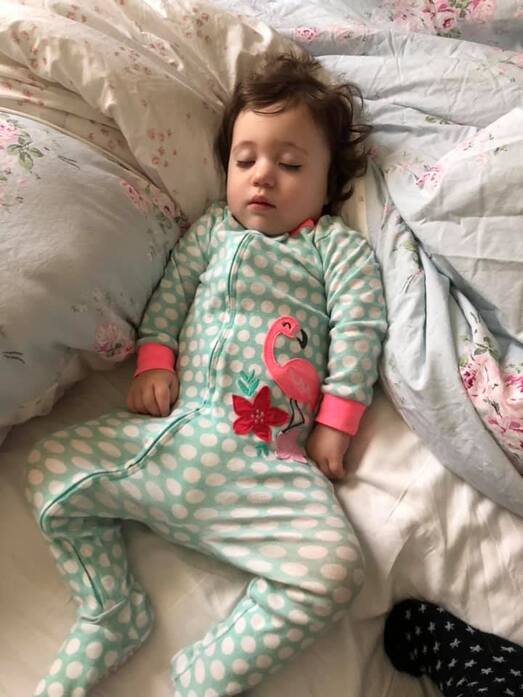
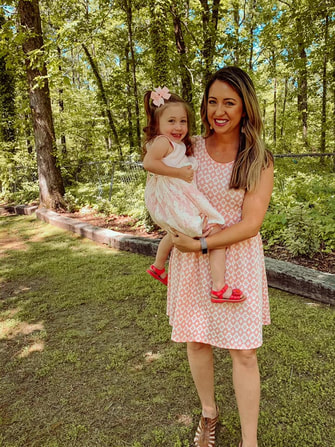
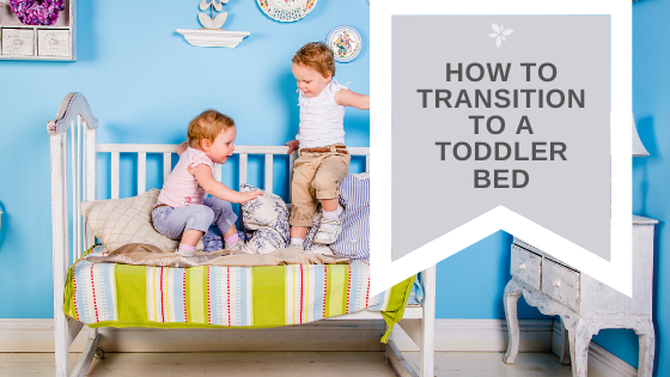
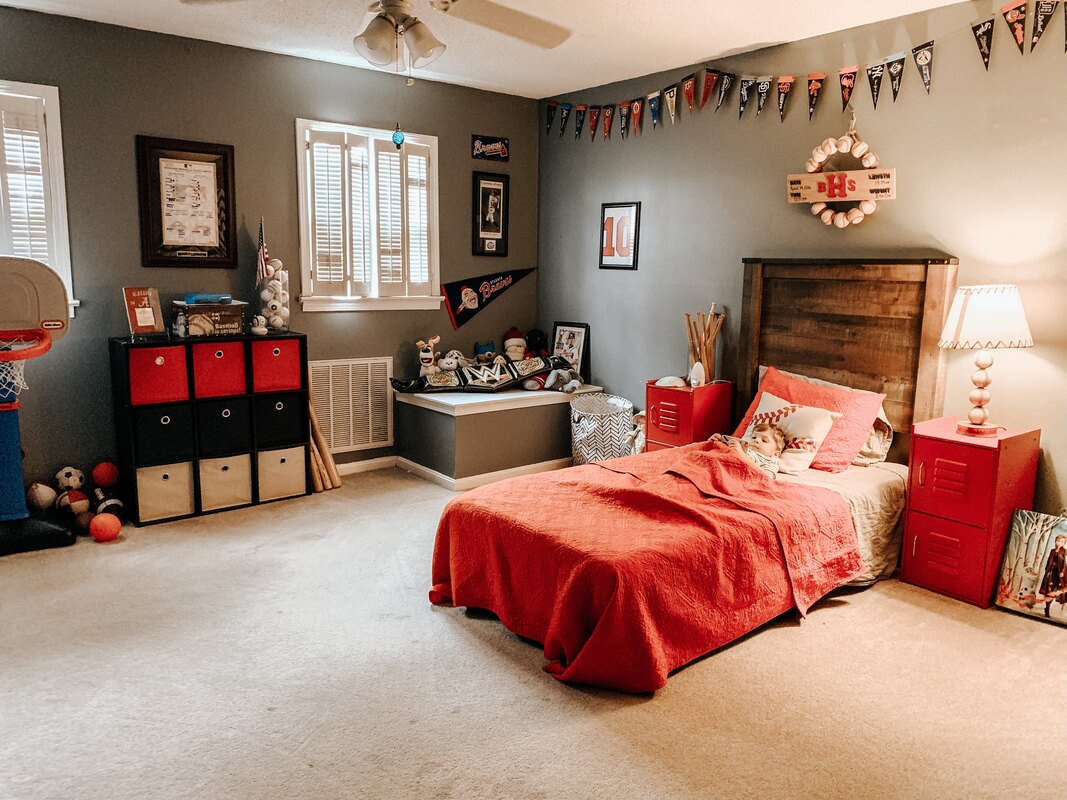
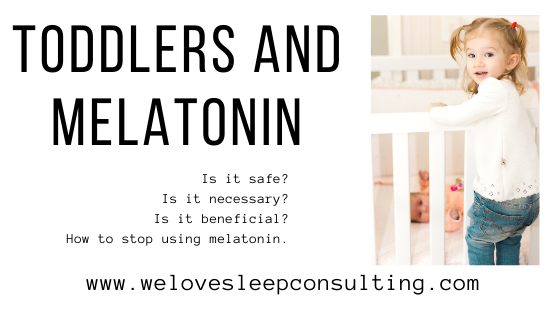
 RSS Feed
RSS Feed
